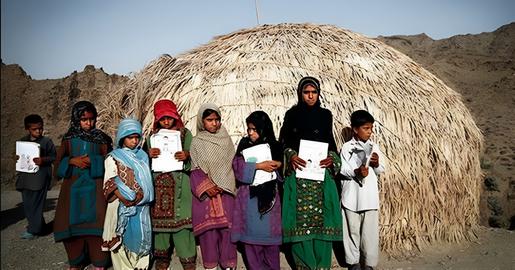Thirty percent of school students in the Iranian province of Sistine and Baluchistan have dropped out of school, according to a provincial representative in the Supreme Council of Provinces, revealing a startling educational crisis that speaks to inadequate facilities and the financial burden of educational services. The problem is compounded by the number of children who face pressure to drop out and become child laborers.
IranWire spoke with a member of the Kurdistan Province Teachers Trade Union to understand the issue. The individual’s identity has been withheld for security reasons.
One challenge, the union member said, was that the school system in Iran did not do enough to prevent dropout rates and in particular in underprivileged and less-developed regions. The stark contrast in the distribution of educational resources between provinces like Sistan and Baluchistan and Kurdistan, as opposed to more affluent regions such as Tehran, Alborz, and Isfahan, highlights disparities in this regard.
The repercussions of centralization, teacher shortages, lack of schools and classrooms, inadequate educational tools like digital resources, and soaring educational expenses have also pushed numerous children into the labor market instead of keeping them classrooms.
The predicament is notably prevalent in rural areas compared to urban settings.
The union member, who is also a teacher, outlined the potential dangers and harm awaiting these children in the child labor market.
He underscored that the consequences of not completing schooling, and moving into underage work, included poverty, susceptibility to addiction, unemployment, involvement in criminal activities, psychological distress, harassment, illicit trade and even forced migration.
The concerned teacher further observed, "Regrettably, it appears that the government has yet to address this crisis. In fact, there seems to be a disconcerting indifference, and some may even suggest that it is content with maintaining control over an illiterate population."
He added: "This not only exacerbates economic concerns within families but also undermines the desire for education among students, who may perceive that pursuing higher education will lead to a lower income than that of a manual laborer.”
The teacher also pointed out that there are not enough schools in rural settings, and not enough new ones being built, which presents yet another reason for children dropping out of the education system.
"Regrettably, very few schools are built in rural villages, and when they are, they typically offer only elementary education. To access first and second-grade secondary courses, students must travel to cities,” the teacher said. "This not only imposes the burden of commuting expenses but also significantly increases the challenges faced by these students. Families, often financially strained, cannot bear the cost of their children's travel. Tragically, many students have been involved in accidents and lost their lives on these treacherous journeys."
I can personally attest to the grave consequences of this educational disparity. During the 2017-2018 school year, I bore witness to the tragic loss of three students in accidents while on the way to school.
I also went to school in my village up until the sixth grade after which I had to travel to Saqqez and it was that same road, from the village to Saqqez, that claimed the lives of these three young students.
The member of the Kurdistan Teachers Trade Union also drew attention to the issue of higher dropout rates among girls as compared to boys. The higher rate is exacerbated by the persistence of gender biases and discrimination which extend beyond the government and into social norms and attitudes.
He said: "In rural areas, girls are more prone to dropping out of education compared to boys. Moreover, it's notably more challenging for girls to make the journey from rural settings to urban areas. A common, yet detrimental belief prevails that ‘Girls don't need an education; they can simply learn to sew.' However, this perspective reflects the systemic negligence of the education system when it comes to girls. It's an embodiment of class-oriented thinking, where women are expected to get married and manage households. This mindset deeply influences families, especially those residing in villages with limited resources."
Teacher Shortages: A Growing Concern
For several years, teachers have also voiced concerns over the critical shortage of new members of their own profession in the country.
Many of Iran’s current educators are nearing retirement age, yet the government has yet to address their needs, leaving them without vital services. Teacher protests are often met with suppression and those who dare to voice grievances are frequently subjected to imprisonment or constant threats.
The member of the Kurdistan Teachers’ Union said: "The government has taken no meaningful steps to address the shortage of teaching staff."
As a result, parents often resort to enrolling their children in private schools – which are expensive. This perpetuates a cycle where the government seeks to reduce its own financial burden of educating students.
visit the accountability section
In this section of Iran Wire, you can contact the officials and launch your campaign for various problems

























comments